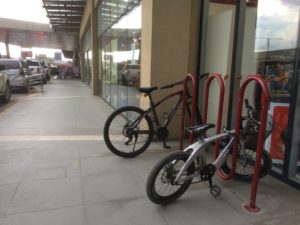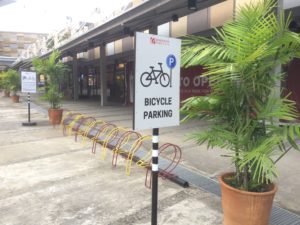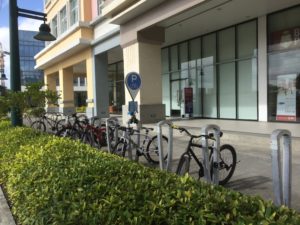Biking transformed Iloilo landscape and it is for the better.
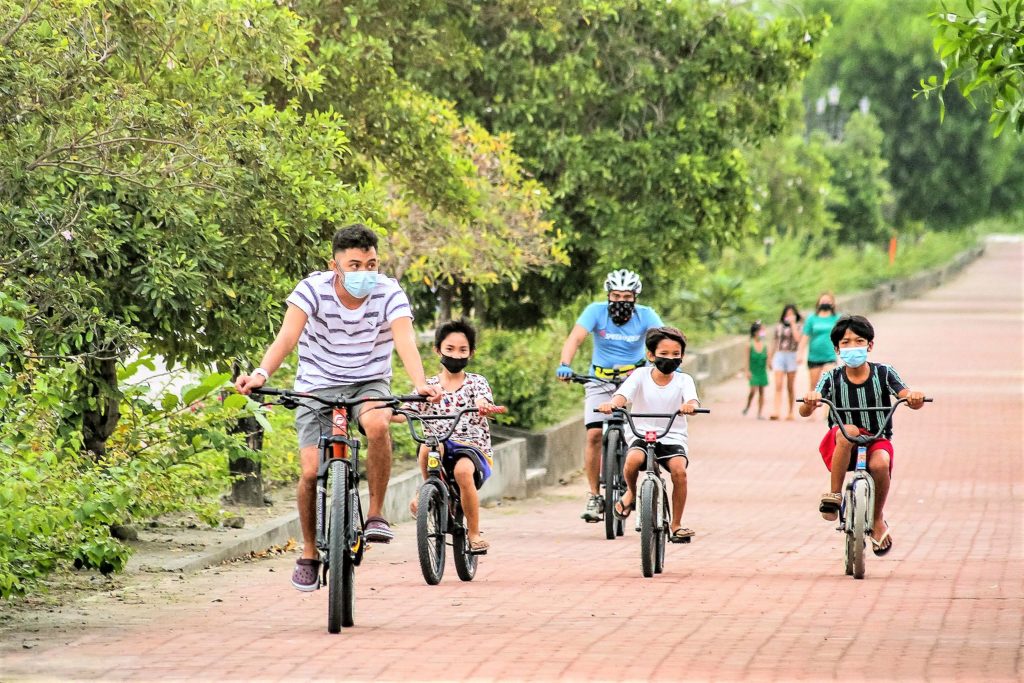
An enjoyable virtual conversation transpired last Saturday afternoon when I joined bike advocate, award-winning writer and UPV Math Prof. Early Sol Gadong as a guest in the program Gametime: A Sports Podcast hosted by Ruding Villaruz and Christian Jun Jagorin.
It was fun because of its open and spontaneous conversation format. I only learned, albeit belatedly, that we were in a maiden episode, and biking and the Iloilo bike culture was an introductory topic. Nevertheless, biking is a popular topic in the last 5 years and this was further intensified by the pandemic lockdown becoming a hot subject matter today.
The 1.5 hours convo appeared short yet the hosts was able to cover various facets of biking using a mix of questions ranging from off-the-wall, which elicited laughter, to serious, and even technical. I consider biking as an interesting issue of our time for it intersects with many issues. Biking has become a serious matter for the Ilonggos and this is signified by the volume of day-to-day topics that are being brought to social media groups by bikers.
A text, photo or video posted at 7am serves as a good trigger for passionate exchanges all throughout the day demonstrated by catchy sarcastic phrases to educational, legal, technical and streets smart practical opinions. If you have visited the group Iloilo-Bike Lanes are for Bicycles then you will agree with me that bikers wake-up in the morning or go to sleep at night with an information to share, a finding to warn bikers of dangers on the road, or an analysis worth asserting.
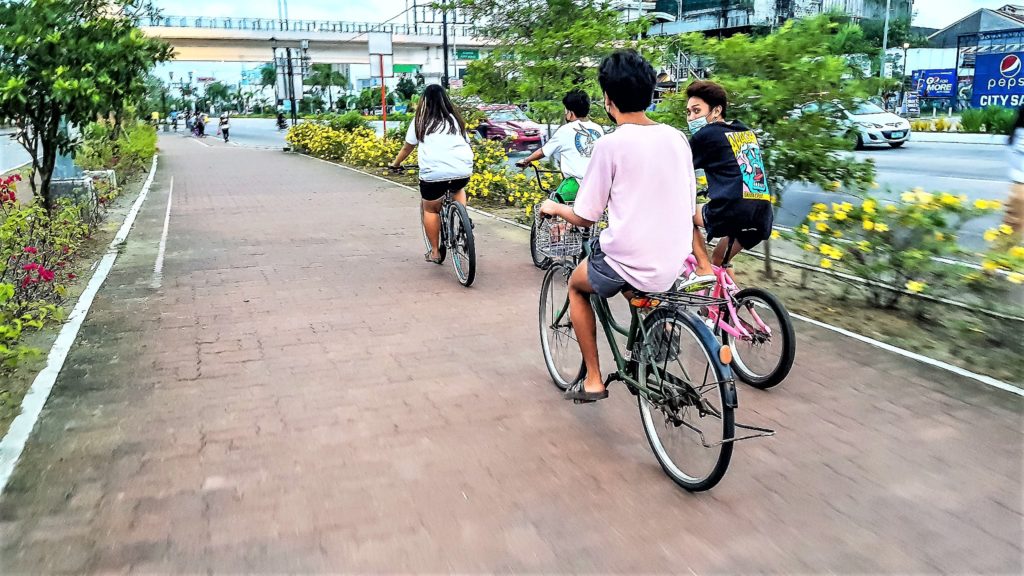
I tell you, biking has occupied its own space in the Ilonggo psyche side-by-side with the enduring popularity and reputation established by other elements that energizes Ilonggo culture like food, heritage sites, art and tourism. The lockdowns and eventually long COVID has fortified the biking sector in Iloilo.
Gametime hosts asked if biking has changed the landscape of Iloilo. The simple answer is – yes. It brought multi-dimensional changes in this part of the world. I accounted some of the changes that I have gathered from my own observation.
Biking transformed Iloilo’s physical landscape. The integration of an elevated and protected bike lane in the road widening of the Sen. Benigno Aquino, Sr. Avenue begun the decade long process of enhancing Iloilo’s bike culture. This is not say though that there were no bikers before that, but the infra brought biking to centerstage and its served as an element for multi-sectoral unification. Individual bikers joined by another one or two forming a group and eventually it shaped a collective circle
I find this case similar to what many call “you build and they will come” – not a bad concept if gleaned from the success shared by Noah in the Bible story or from the film Field of Dreams, which starred Kevin Costner. But infrastructures transformed the landscape of Iloilo. While the constructed bike lane underwent a period of under-utilization, it later on activated engagements which pushed the process of development and generated an interplay of input between the local government and various stakeholders.
Today, the changing landscape continues and these are manifested with the bikeability of Esplanade three to 10; existing roads were integrated with bike lanes; significant spots were linked up by a bike lane like the University Loop; plazas, parks, malls and townships. Furthermore, apart from roads, bike lanes will connect towns as DPWH have reported that all road widening projects and new road constructions are now designed to be pedestrian and biker-friendly with sidewalks and designated bike lane. One such project is the Sunset Boulevard from Mandurriao to Oton.
Read: Iloilo to Oton bikeway to enhance #IloiloBikeCapitalPH
One of the formidable evidence that biking has transformed Iloilo’s physical landscape is the growing population of bikers and bike groups. Go out to see for yourself every morning, afternoon, evening and weekends.
Biking transformed the local economy. Biking is now a multi-million business industry. Most bikers can tell that bike enterprises is one of the most thriving business in Iloilo. What used to be a small bike store 10 to 15 years ago has now expanded and with an improved product line and services. Tiny road side tire vulcanizing shops now sell parts and offer repairs. Bike washing, an unimaginable service provision, is now made available. Bike shops and cafés are scattered in populous urban district and in isolated dirt road areas, but still accessed by bikers and it grows through social media posts. The flourishing surplus bike selling, bike rentals, bike assembly, accessories, safety gears, maintenance and post sales services reveal that there is an active bike economy in Iloilo.
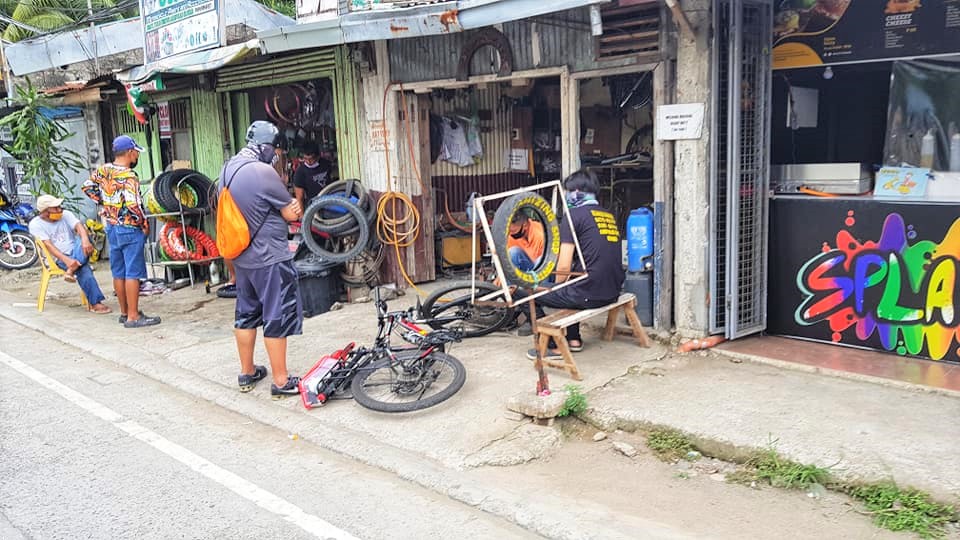
Bikers are increasingly acknowledged as a dominant driver of the local economy and this made evident by provisions for bike parking, bike racks for safety and security, and other services which shows that a bike enterprise is a niche in the local economy.
Biking transformed politics and governance. New policies, ordinances and regulations indicate that biking is reshaping our policy environment; it stimulates good governance; and it forms biking and sustainable mobility champions among legislators and chief executives.
We are aware that resources give life to policies in order to be implemented and rules enforced. Iloilo City alone has numerous policies and ordinances that were passed in support of bike culture and the LGU has invested both on hard and soft projects for the sustained development of the biking sector. The prioritization is far from being perfect but the essential element is already in place.
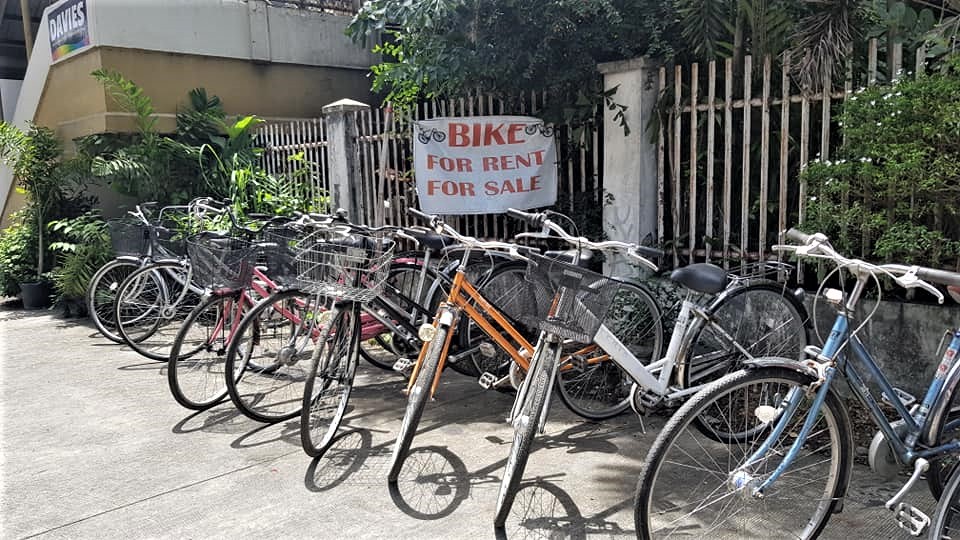
The biking sector is a social movement. The sector is composed of advocates who are competent on mobility, road safety, road user literacy, climate change, and sustainable development. The biking sector is a collection of opulent professionals who are dispersed in the field of academics, arts and culture, legal and the judiciary, urban and environmental planning, and women and human rights, among others.
The bikers is a social movement that cannot be disregarded or can be manipulated by means of legal or socio-technical tools used for systematic marginalization. This is a sector with a dominant middle class population who are educated, independent-minded, and who holds individual resources in our society.
Read: World Bicycle Day? It’s any day in Iloilo
The biking sector is not a marginalized sector of our society. This is a sector with an intersectional character as a movement and it possess the natural disposition to unite and push for its collective agenda. The pandemic has momentarily delayed or suspended its progress, but it has stirred Iloilo for the better. The energy that will bring more changes will be unleashed by the bike sector once the pandemic is normalized.
===
Selected photos were lifted from Iloilo-Bike Lane are for Bicycles Public FB Group.

